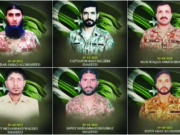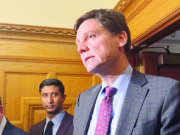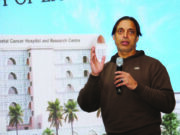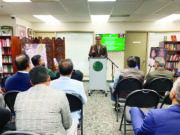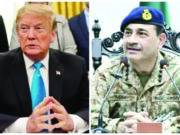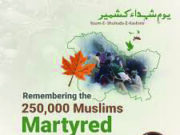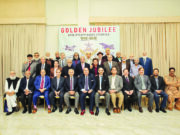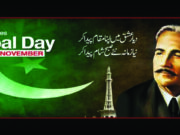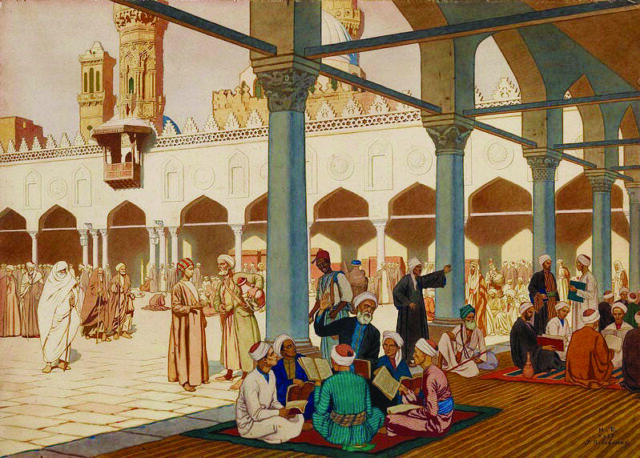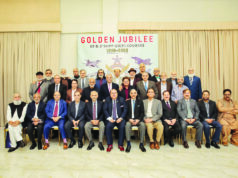By: Hasan Rabbani, Gr 9
Muslims are to be credited for thousands of achievements, inventions, and discoveries that have made the world a better place.
The effect they’ve had on society is immeasurable.
From surgeries and medicine to mathematics and physics, Muslims have changed the way people think about and explore different fields of study. Unfortunately, Muslims aren’t always given the deserve; often their achievements are forgotten or swept under the rug to be celebrated as the discoveries of somebody else. Our ancestors and the generations before us had never heard of the incredible work that Muslims should be credited for.
Although the internet helps protect ideas from being stolen, kids still aren’t being taught who really invented and discovered the things around them. In our textbooks at school, it would tell us that Leonardo da Vinci was the first human to imagine flight, when a Muslim man had already done it almost 700 years prior. These Muslims dedicated their lives to meaningful work, but now go unrecognized and unnamed. It’s our moral responsibility to correct these wrongs and make sure that future generations know who to glorify.
Mathematics is one of the many fields that Muslims have built upon and changed for the better.
For example, the discovery of algebra by Al-Khawarizmi in the 9th century. Algebra is the system used to solve linear and quadratic equations. Algebra is used millions of times everyday, such as writing and executing algorithms, for budgeting and forecasting, and running realistic simulations. The word Algebra is derived from Al-Khawarizmi’s book Al-Jabr, in which he published his findings. Another example of Muslim excellence in mathematics is Arabic
Numbers, the numbers 1 through 9 used in over 7000 languages around the world, and almost every written language.
Very few exceptions remain: East Arabic numbers, Devangari, and Chinese numbers, to name a few.
These numbers were derived from an Arab-Indian origin and implemented by various Arab mathematicians. Al-Khawarizmi was the first documented person to have introduced and spread these numbers beyond the Middle East and the Indian subcontinent.
Another example is the proper implementation of negative integers, such as giving them everyday uses and clarifying their rules. Abu-Kamil set the foundation for the rules of multiplication and the use of negative integers in equations, and mathematicians who followed further clarified his rules and worked upon his writings.
Abu al-Wafa al-Buzjani was the first documented person to use negative integers to describe debts, giving these numbers a practical use. Mathematics is the field in which Muslims are most recognized, because their achievements are so impactful that they can’t be ignored. Still, their names are erased, and many are taught that these concepts come from Western European and Greek origins.
The achievements Muslims have made in astronomy and medicine help us better understand our world. There are hundreds of stars discovered and named by Muslims. Abd al-Rahman al-Sufi discovered the Andromeda galaxy in the 10th century, and scientists have since learned things like hints at dark matter and the scale of size and distance across the universe.
Taqi al-Din constructed one of the world’s first and largest observatories.
Other Muslim astronomers have been praised for creating such
accurate star catalogues and astronomy tables, which are labelled as treasures today because of how accurate they were for their time.
Similarly, the achievements Muslims have made in medical sciences help scientists and physicians understand the body, the mind, and the different conditions they may face. In psychology, Ibn Sina, an Uzbekistani physician, was the first human to classify our 10 senses into 5 external and 5 internal senses. He theorized that most diseases are caused by tainted organisms; however, some diseases and illnesses are out of human control and completely natural, a concept completely unheard of to the people of the 11th century!
He understood and documented his research on emotions and their effects on the body and mind.
Additionally, he explored conditions such as hypnosis, delusion, depression, and epilepsy in great detail, paving the way for future physicians to provide better treatment and better diagnose patients. Ibn Sina was not the only great physician; Ibn al-Nafis correctly contradicted Galen, claiming that all the blood that would reach the left ventricle would first pass through the heart.
As well as Al-Razi, who set the foundations for gyneacology, oncology, eye surgery, and pediatrics as their own fields of study, realizing how unique and important the topics are. Al-Zahwari was known as the father of surgery for his accomplishments,treating conditions such as breast cancer with brand-new, successful surgeries. He wrote three textbooks on surgery, one of them detailing the uses of over 270 surgical tools to be used in procedures.
Likewise, Ibn Zuhr wrote books, guides, and manuals on hygiene, therapy, basic and common diseases, healthy eating guides, and a general overview and summary of most medicines.
Although Muslims helped correct many Greek and Indian physicians, they are part of the reason that we have their observations today, as Muslim scholars summarized, fact-checked, and compiled them. However, the Muslims are rarely given credit for their life-changing impact and incredible discoveries, with most of their own ideas and concepts being taught as if someone else had discovered them, particularly the Greeks and the Indians.
There are many meaningful achievements made by Muslims that aren’t well known simply because people don’t ever talk about them, and they assume that someone else achieved it. For instance, many people casually assume that the Wright Brothers were the first ever to fly, when Abbas ibn Firnas, a Muslim engineer and chemist, took flight more than a millennium prior and is credited by NASA to have done so.
People also assume that the first ever university was founded somewhere in Europe, such as Oxford or Bologna, when a Muslim woman was actually the first to do so. The University of al-Qarawiyyin in Morocco was established in 859 AD by Fatima al-Fihri, back when the campus was a madrasah attached to a masjid.
Another discovery people don’t realize Muslims made is coffee.
Coffee is a staple in the lives of many and was first discovered by an Ethiopian Goatherd, who brought it to Arabia, where the people learned how to harness its effects. Then, the Arabs spread the drink around the world, teaching others its effects and how it was made. Nobody copied or stole these inventions or the credit for these discoveries; however, it’s falsely given to them because people don’t know who actually made these achievements.
Another group of inventions and discoveries includes those which others have wrongly taken the credit for. Articles, textbooks, and teachers don’t give credit to the real inventor and don’t teach the valuable work that a Muslim has actually done. For example,
Abbas ibn Firnas’s achievements are often disregarded, and textbooks and teachers teach that flight was a Renaissance thought, and Leonardo da Vinci was the first to imagine and design a craft for human flight. As mentioned above, Al-Khawarizmi’s achievements were taught as if Greek and Latin peoples had discovered them.
Another example is Ibn al- Haytham’s Book of Optics, and
how he proved that light enters the eye instead of the previous theories that the eye emits light.
When his book was translated for the Europeans, they cut his name out and built upon his ideas, calling them their own.
In astronomy, Taqi al-Din invented multiple astronomical instruments that Galileo is credited with designing instead. The astrolabe, a navigational tool that revolutionized sea travel in the Age of Exploration, is often taught in schools as a Renaissance invention, when really, Muslim scholars invented it. Another invention often accredited to Renaissance engineers is the crankshaft, when Al-Jazari already created blueprints for one. Engineers like de Honnecourt and da Vinci copied his design blueprint for blueprint. This hasn’t happened only once; it has happened endlessly throughout history, and the main problem is that the original inventors are still not being credited.
Ultimately, we can’t go back and change what’s happened, all the ideas and inventions that have been stolen. However, we need to start giving credit where credit is due. This could mean updating textbooks and exploring the Islamic Golden Age in schools.
Discussions related to why this happened and how to prevent it from happening again. Also, it’s not only kids that we need to educate, teens, adults, and seniors; everyone should be informed of the incredible achievements Muslims have made, especially when these achievements relate to parts of our everyday lives.
The cars we drive utilize a crankshaft. The first university was founded by a Muslim woman. Doctors refer to Ibn Sina and Al-Zahwari’s writings. The ideas and inventions of Muslims exist all around us and have helped
6.7
C
Vancouver
Wednesday, November 5, 2025
